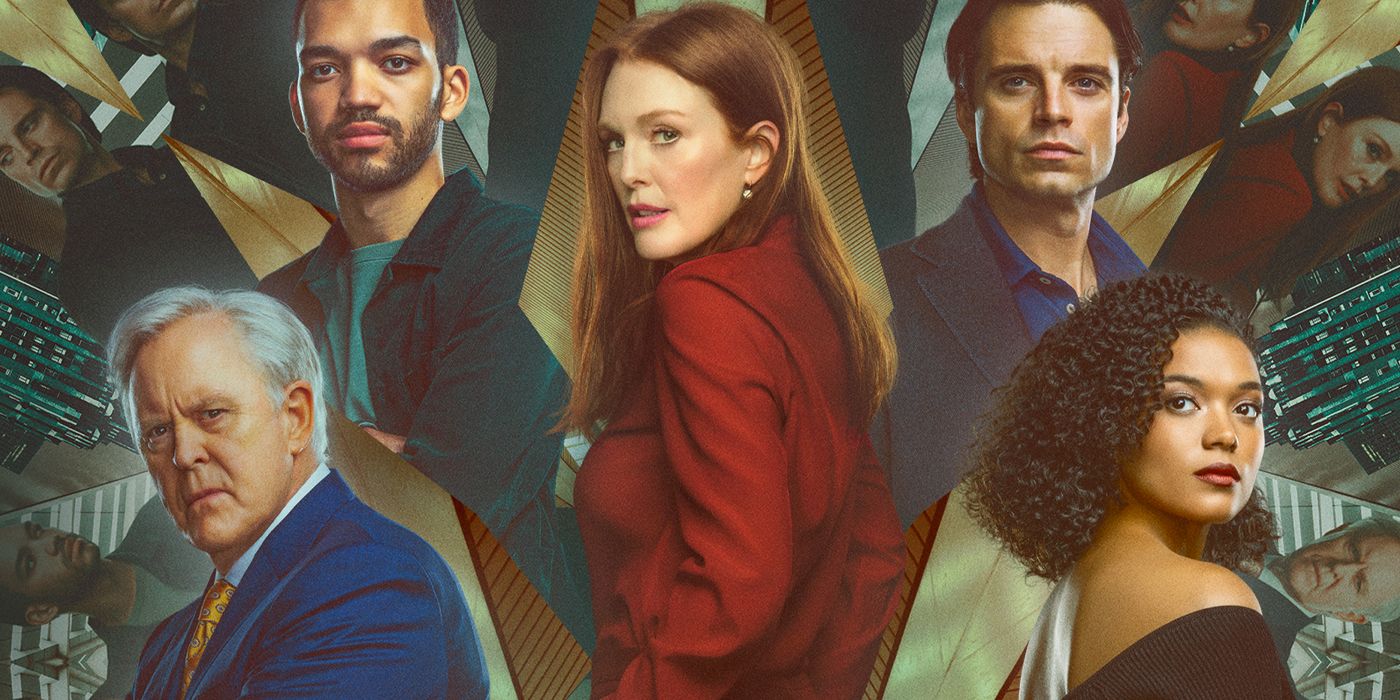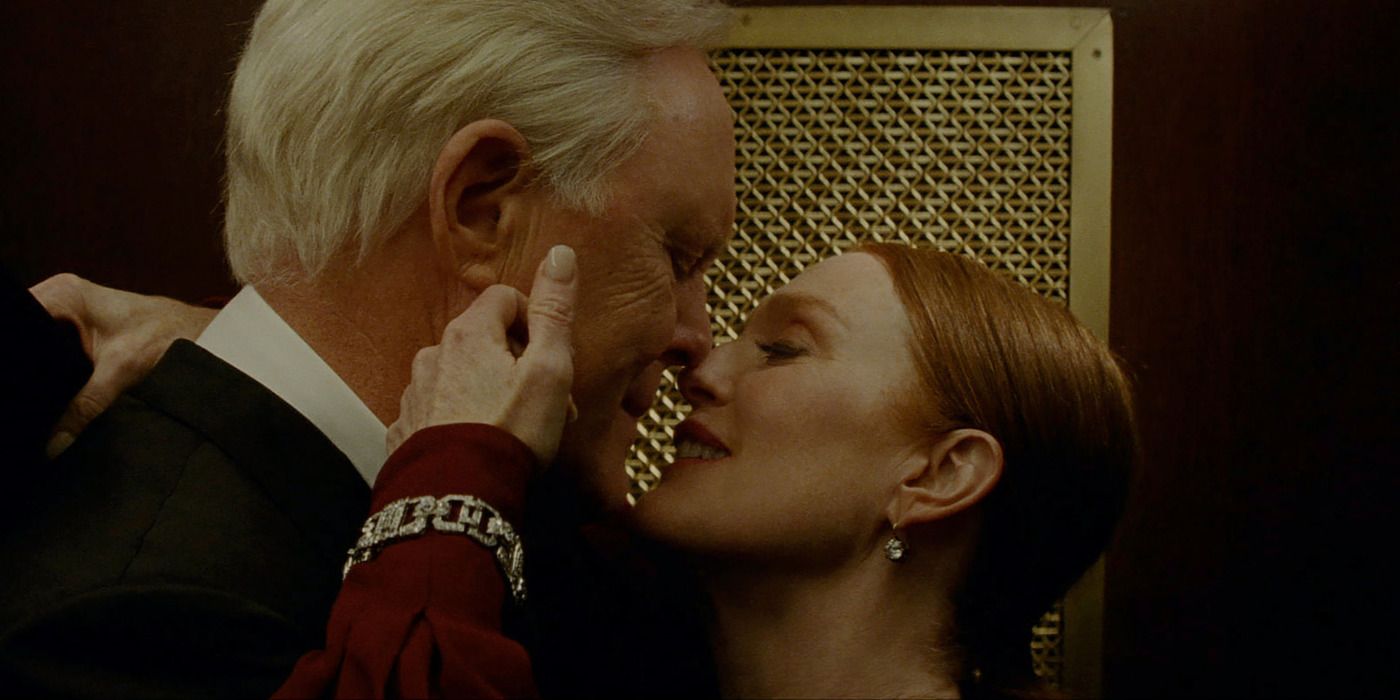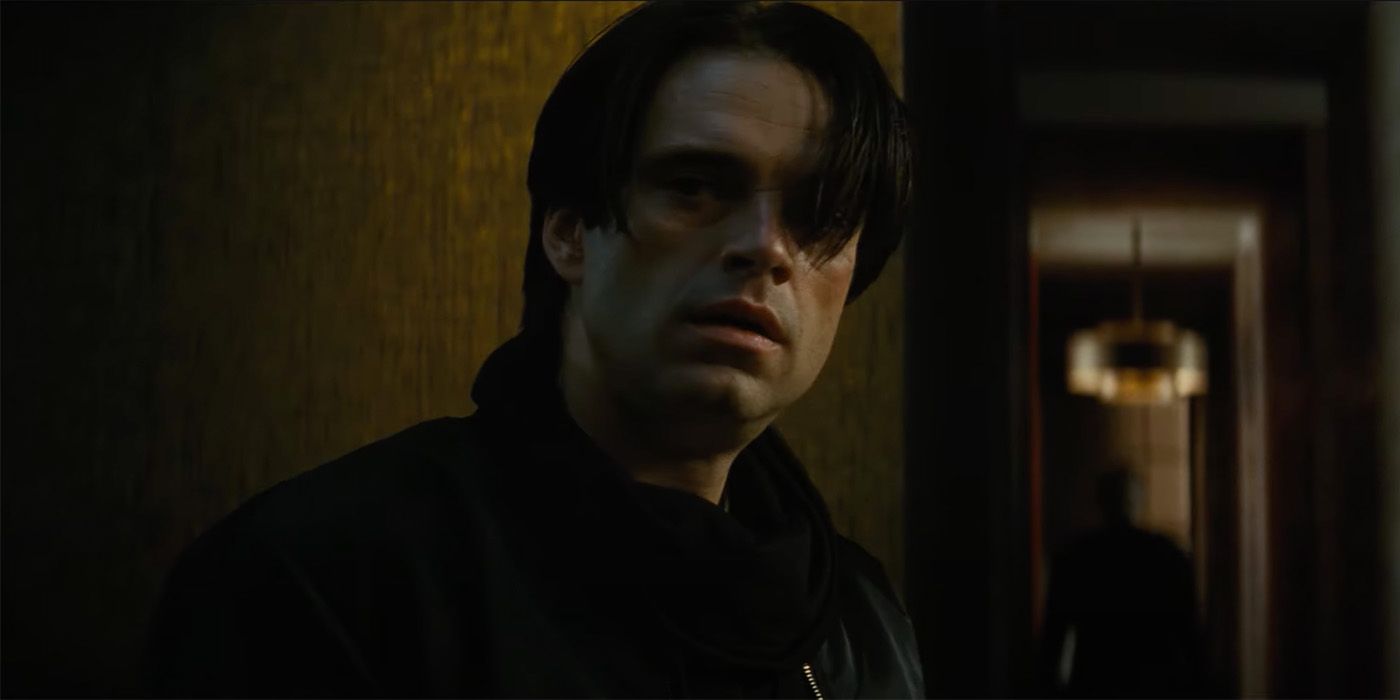On paper, Sharper is the type of movie that is made for me. Sebastian Stan plays a grifter named Max who, with his lover and partner Madeline, played by Julianne Moore, pulls jobs conning rich people out of their money. When Max and Madeline have a falling out, he meets Sandy, played by Briana Middleton, and employs her while teaching her the tricks of the trade, using her to honey-trap the oblivious and rich Tom, played by Justice Smith. Told in a non-linear fashion, Benjamin Caron's film almost manages to impress, but falters in the final act and fails to wrap the story up in an interesting way.
Written by Brian Gatewood and Alessandro Tanaka, there is a certain sleekness to the majority of the film that makes it alluring at first glance. Stan's Max is insanely charming, and he uses his skills as a confidence man like a well-honed weapon. We're never quite comfortable in his presence, but he still draws us in all the same. Middleton's Sandy is warm and empathetic, a quick study, and thrilled by the adrenaline that comes from a successful heist. Oftentimes she also acts as the voice and perspective of the audience. When she falls for Smith's Tom, it's made that much more tragic when you learn why Sandy is conning Tom in the first place and how it plays into the larger plot. If the movie focused on this dynamic between the three characters, Sharper might have been better off. But Moore's Madeline throws a wrench in the film that complicates things unnecessarily.
It's not that Moore isn't great, her performance, along with that of her co-stars, is impressive, and she has a presence that dominates any scene she's in. But Madeline adds a new facet to an already convoluted story. Her relationship with Max is the true catalyst of the events of the film, but by introducing her later in the movie, there's little time for her to develop beyond what she is at the surface. She becomes a character who is the two-dimensional villain by default simply because we don't know enough about her. Her scheming is delicious, but it feels shallow compared to the earlier scenes in the film where we watch as Max trains Sandy in the skill of the grift, or we watch as Sandy and Tom form a close bond while dating. When the overall story reveals itself to be more melodrama than thriller, that's when it all falls apart. The story gives in to a saccharine conclusion that feels droll and uninteresting.
Although there's a lot happening in the movie that telegraphs the ending we get, it still feels lacking. Perhaps it's because we're aware of the inherent danger and manipulation involved in pulling a con, and that makes us question how realistic the ending can be. The bad guys are shoved to the side and the good guys win — it's never that simple, but Sharper seems adamant to make us feel warm and fuzzy by the end. It's disappointing because the film has the potential to be a great crime thriller. Its non-linear narrative and moody aesthetic feel effortlessly cool, elevating the film beyond just a crime story. Max is a chameleon, switching between being on and off so quickly it's hard to tell if he's great at his job or simply sociopathic. Paired with the more vulnerable and open Sandy, the film makes their connection feel heavier than any other in the story. There are scenes between the two of them that make us believe there is a human being beneath the glossy veneer that Max keeps up, and that's when the story is at its most interesting. Yes, Sandy has feelings for Tom, and Max has feelings for Madeline, and those feelings are complicated, but the chemistry between Stan and Middleton made me wish for more scenes between the two.
And maybe that's also because their scenes are the ones involving actual grifts, bringing us into the grift rather than dropping us in at the halfway point or at the end. Part of the fun of movies like this, like American Hustle, Catch Me If You Can, or Oceans 11, is being in on the con — feeling like you're getting away with the crime and being in on the trick. Sharper utilizes the cons later in the film less as full scenes on their own to show off character skill and more as a vehicle that barrels us toward the desired ending faster. It feels like a cop-out, unearned due to how much plot is jam-packed into one story. The pacing suffers because of this, and by the last 40 minutes, you can see the ending coming from a mile away, and you're merely forced to ride it out to the end. The story goes from being dark and sinister to surprisingly sweet, topped with a neat bow. There's no messiness from the fallout of a con gone wrong, it just ends.
It's disappointing because I can imagine a version of Sharper where we're left discomforted by the film, wondering who we should have been rooting for all along. In real life cons, grifters are often damned as villains but also hailed as heroes, especially those who steal from the rich. After all, as we learn, the marks that Max and Madeline go after are uber-wealthy, with money that is probably unethically earned. There's a sort of worship of the grifter who can trick people using their charm like a superpower, especially when used against someone we feel deserves to be conned. As the audience, we should have been lured into liking Max, Madeline, and Sandy, we should have been rooting for them to win even if we knew it came at the expense of real people like Tom. But Sharper draws the line in the sand for you and weakens its narrative in the process. Ultimately, there's much to enjoy in Sharper, with a premise that offers intrigue and a strong group of performances, but it falls flat at the end, unwilling to dig deeper into its characters or the meaning behind its story.
Rating: C+
Sharper is now available in select theaters and on Apple TV+



